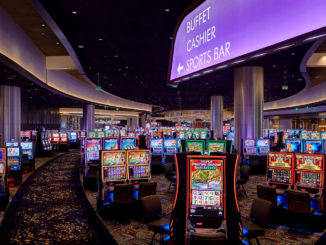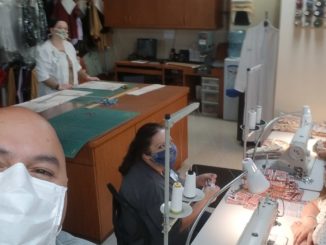
The past few months have profoundly impacted the world. Much of what we do, and certainly the way we operate, has changed as well. The old saying that “normal” is just a setting on the washing machine is truer than ever. Major events like these often come with lessons – some that are positive, some that are a bit more painful. I want to talk about a few things that I think 2020 has taught us so far.
First, we’ve learned that there are things that can halt our entire economy.
Events can shut down businesses and governmental operations on a national and global scale. Most of us likely thought we’d never see such an impact from anything short of global war. Even then, most of us have never lived through a large-scale war, so we couldn’t even really know how that would affect us. Our perspective has been forever changed.
Next, we’ve seen that well-intentioned politicians can attempt to fix problems by throwing money at them.
While the aid can be helpful, it can also create more problems when it is delivered so hastily that it creates confusion or isn’t delivered in a timely manner at all. Agencies aren’t given the chance to develop complete plans, so change after change must be made to clear up that confusion. Furthermore, our government’s systems are not designed or equipped to handle large-scale distributions of aid, especially not quickly.
In the business world, many people are developing a greater appreciation for innovation and flexibility.
All businesses, especially those in the food and beverage industry, have been forced to adapt their operations and product delivery systems to the needs of our changing economy in order to survive. Some have done this so well that they’ve managed to thrive in this adversity. Their focus has been on how to deliver their product in ways that require less handling and still make the experience as pleasant and painless possible. One of the most innovative things I have seen is a quick-service restaurant that was providing drive-thru service only. In normal times, their drive-thru is very busy during peak times. The pandemic has made the lines much longer than normal. To help alleviate the pressure on the single window, their team devised a plan to split the line into two lines. One line served the traditional drive-thru customers while the other handled customers who used their app to order. The resulting service was faster than it was before the pandemic, even though the volume was higher.
So how do these things apply to us in gaming?
I think this disruption and recovery has started all of us rethinking how we provide services for and interact with our guests. There has already been an emphasis to change how we interact with guests in the transfer of cash. Offering fewer cashier windows and funneling more transactions to ticket redemption kiosks. The events of the past few months will also hasten these changes along and move us towards more cashless transactions. Many of the cash service providers have introduced cashless systems. One challenge to anticipate here is the regulatory environment. Internal control standards have always been focused on cash. Regulators, as well as operators, are going to have to adapt.
Like the industry as a whole, food and beverage operations within our casinos are going to have to change as well. Old standards like the buffet will need to be reconsidered and reworked, as well as floor and self-service beverage stations. Much like the quick-service restaurant discussed above, we are going to have to look at the resources we have, listen to our guests’ wants and create innovative solutions. Since self-service is no longer an option, we are going to have to come up with ways to package and deliver food and drinks without driving up our costs too significantly. Partnering with food and beverage vendors and suppliers to develop solutions will likely yield the most cost-effective results.
That is still just a couple pieces to the puzzle. Hotels, spas and other amenities will also need to undergo changes in the way that they provide their services. The operations that will survive and thrive in the near and long-term are the ones that stay flexible in the way they provide service to guests, regularly innovate and improve their processes and systems, and are watching vigilantly for potential disruptions to business. Listening to the ideas of our team and the wants and needs of our guests is a good place to start. What we have always done will not be good enough anymore.




